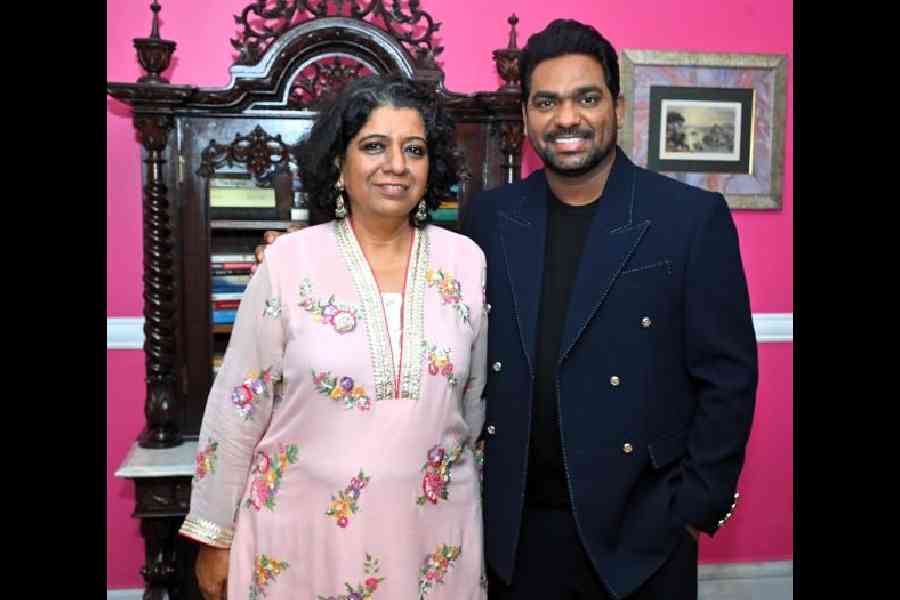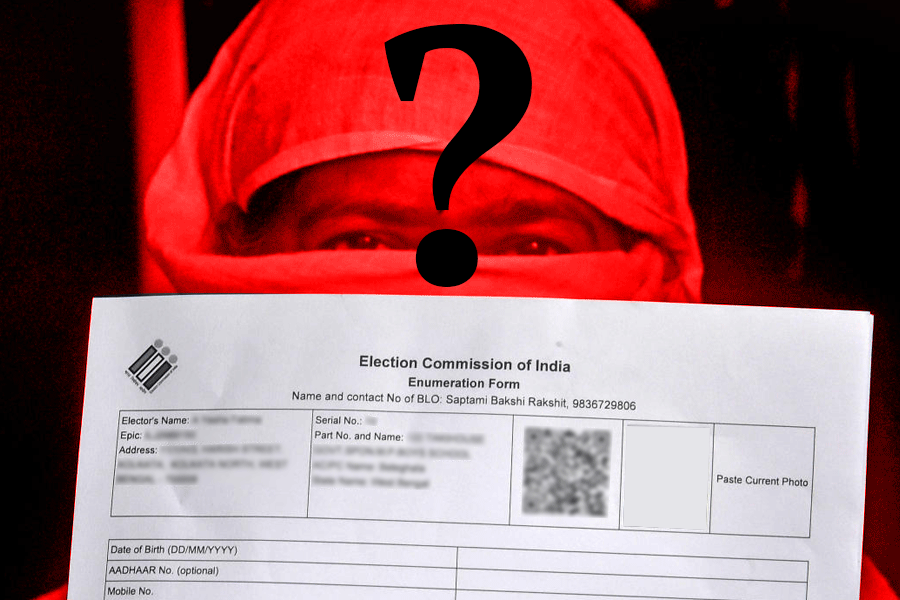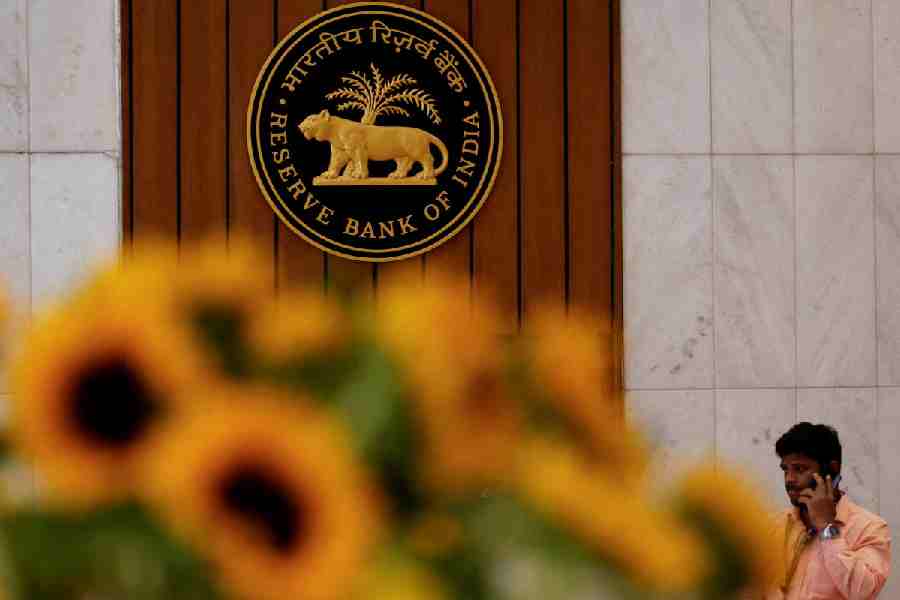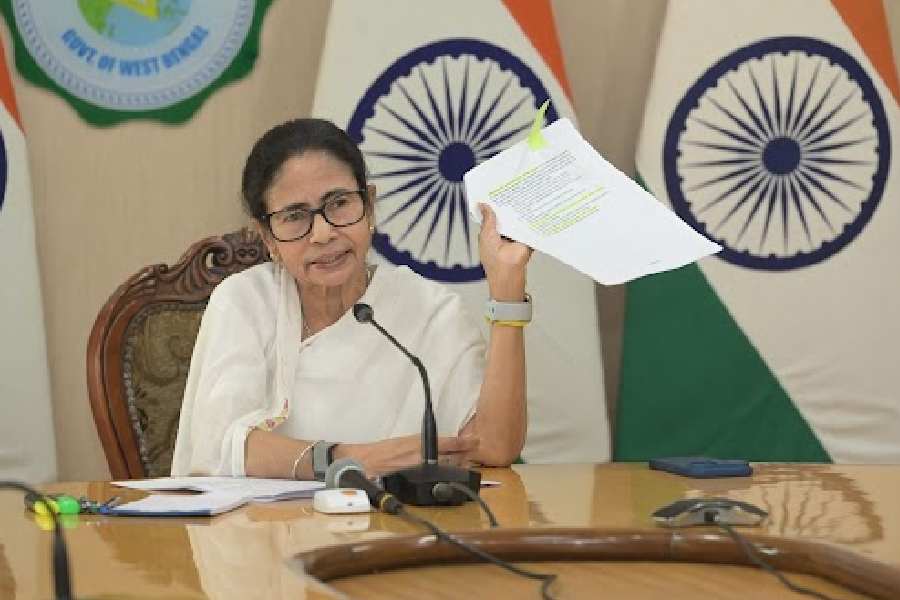At the glimmering poolside at The Glenburn Penthouse, two Indian stalwarts — a stand-up trailblazer and a celebrated chef — settled into an unexpectedly intimate conversation. Before that, London-based Calcutta-born chef Asma Khan hosted a special soiree for friend and stand-up comic Zakir Khan, who was in town for a special show.
As I sat across from them for a chat, what unfolded was less an interview and more a free-flowing conversation between two artistes who have carried India — its stories, its pain, its humour, its flavours — onto some of the biggest global stages. They were warm, tired, unfiltered. They both spoke with deep pride and deeper vulnerability. And the two, as the night would reveal, share more common ground than their crafts might suggest.
Representing India abroad: Stigma, pride, and the silent duties of being seen
When asked what surprises them most about how international audiences perceive India, Zakir leans back, thinking it through slowly. “Honestly,” he says, “nothing surprises me any more. We’ve seen everything on the Internet already”. But his tone shifts — gentle, deliberate. “When I travel, I know I’m not just myself. I’m the country. My whole team does this thing: when we leave an auditorium or stadium, we thank the staff — security, housekeeping, everyone — doing a namaste. Because when they see me, they’re seeing India.” He smiles, almost sheepishly. “My team and I joke that while others walk smooth roads, God has given me jungles and pakdandis to cross. Maybe I’m meant to pave the path for those who’ll come after.”
Asma, meanwhile, grapples with a different stereotype. “I’m always surprised by how they think India has one cuisine. No one thinks Europe has one cuisine — French, Italian, Spanish — but India? They think we’re just ghee, cream, spice.” She shakes her head, laughing softly. “Even dal is different everywhere! And what we eat with rice versus roti — completely different worlds. But people love to generalise.” Then, almost as if reconsidering in real time, she nods toward Zakir. “But he’s right. We are representatives. And the way he moves through the world — as an ambassador — I think I should be more like that sometimes.”
Icebreakers: Touch, rhythm, and the ways we connect
Food and comedy, I suggest, are the great icebreakers. Asma jumps in first, immediately transported to moments around communal tables abroad. “My biggest memories are of people trying to eat with their hands because I’m doing it. There are layers — racism, misunderstanding, the idea that eating with hands is ‘unsophisticated’. But touch is sacred in our cuisine. My fingerprint is unique. When I cook, I feel the food. It’s my soul, my patience, my love.”
Zakir admits comedy doesn’t have that instant universality. “Food connects because hunger is basic. Comedy isn’t. It’s subjective.” But then he says something so simple yet so precise it almost feels like craft theory: “If you understand the rhythm of comedy, you can be funny in any language. English is not my first language, but rhythm is universal. Humour touches souls. It breaks your shell, makes you vulnerable, lets you put your guard down.”
The Cities That Challenged and Changed Them
When asked which cities embraced their art instantly — and which did not— Asma doesn’t hesitate. “Calcutta took time. But when it did, it held me close. And the city that was tough, I would have to say London. Because I am from Calcutta. But I would say London because this is the city that has allowed me to become what I am today. But also a city that has been kind and embracing of a very different kind of restaurant and has allowed me the space to talk about politics and power, racism, it’s allowed me to say all of that. It has allowed me to speak about all kinds of things that are difficult and complicated. And I still will never consider London my home the way I consider Calcutta. When I walk on the streets of Calcutta, I feel the dust that flies recognises me. And all the broken bricks, every street knows my name. I never feel that in London. But I feel now like I’m a Londoner.”
Zakir’s story is more layered, almost cinematic. “In 2015, my Calcutta show sold three tickets,” he recalls. “Three.” He asked his grandfather, a sarangi player, which city was his favourite. “He said Calcutta. Not because they loved him — because they didn’t, at first. He said: ‘Go to the cities that love you, but visit more the ones that don’t. They’ll teach you well.’”
Zakir took that advice literally. “In 2015 when I came here and I sold only three tickets I understood that my what my grandfather was talking about. I asked Anirban (Dasgupta), my fellow comedian friend, that who sells the most tickets in Calcutta, and he said that not much and they don’t care about anybody in the country right now, none of our contemporary comedians. Since the past 10 years, I have made a very conscious effort that I make sure that Calcutta is my home, and last night I think Calcutta also reciprocated with equal amount of love. I think that they have accepted me and it was absolutely life-changing, very altering to see Netaji Indoor Stadium fully filled and packed. It was beautiful and surreal. Especially when 10 years back we sold just three tickets.”
Asma, who sat in the audience at the show, adds something no one could have seen from the stage: “Before he came on, people were speaking in Hindi, Bengali, older, younger… but when he spoke? There was breathlessness. Tears. Laughter. Silence. Nobody checked their phones. They inhaled together. I was so proud. And relieved — Calcutta rose to meet him.”
The Weight — and Necessity — of Emotional Honesty
Why do people crave real stories today? Zakir considers it carefully. “There’s never been a time when people didn’t crave real stories. Authenticity takes strength. It takes labour. But that’s what elevates your work. It’s the vulnerability of things, I’d say.”
Asma, as always, roots her answer in identity. “I want the girl who isn’t born yet to walk into a room and not feel she has to shrink. I walk in wearing salwar kameez every day. I’m unapologetic. Not for me — for her. I want her to walk in and own the room. I wanted to be as true as I could because I wanted other people who are living smokes and mirrors, living that kind of life, having to present themselves, constantly having to hold your tongue, to feel comfortable walking into a room.”
If They Could Swap Roles for a Day
Would they ever switch — chef and comedian? Asma bursts into laughter. “I would never want to be a stand-up comedian. That’s for sure. I mean, to put yourself in that position, what if no one finds you funny? Because however bad your food is, they’ll eat it, na? Because they’re hungry. This is like, you know, aa bail mujhe maar. I’m standing there, so exposed, first of all, alone. It needs a lot of courage. There’s no backup band. There is nobody else on the stage. There’s just you. Akela. Besahara. Standing there.”
Zakir, equally dramatic, shakes his head. “I never thought it was that scary. But now when you say it. Now I am terrified to go on stage. I can never cook. Culinary arts is where science meets art meets love meets timing. I lack all of that.” But then he brightens: “I make very good chai. Adrak-elaichi. That’s it. Chai is my domain. Anything else? Not my monkey.”
Bucket Lists and Holy Kitchens
Zakir’s eyes light up when I ask what he’s excited for next. “Honestly? Mangalore. Amravati. Smaller towns where comedy isn’t regular. It’s my job to make sure it reaches everywhere.”
Asma’s dream, however, is deeply spiritual. “I want to cook in Karbala. It’s been my dream forever. I’m not even Shia, but Muharram, Karbala, the food of that place — it calls me. And the rice they use? Indian rice.”
Guilty Pleasures on Tour
Zakir’s guilt is pure joy. “Biryani. From three restaurants. Because if one goes wrong, you have two backups.”
Asma smiles. “For me, chai. Paki hui chai. Before bed, after a tough night — chai. I drink chai before sleeping; caffeine does nothing. I sleep like a baby.” Zakir nods in solidarity. “Same. Who are these people affected by caffeine?”
The Three Words They Choose for Each Other
Zakir on Asma: “Intelligent. Loving. Alpha.”
Asma on Zakir: “Intelligent. Impeccable timing. Loyalty. His loyalty—to his team, his friends, his family — is exceptional.”
As the chat winds down, Asma laughs: “Good luck editing this.” Zakir chimes in: “We’re very different answer-givers.”
And they’re right — different, yet wonderfully complementary. What remains after they leave the room is a sense of profound honesty, the kind that lives between artistes who understand the weight of representing India globally — and the joy of sharing that burden with humour, heart, chai, biryani, and a whole lot of love.










